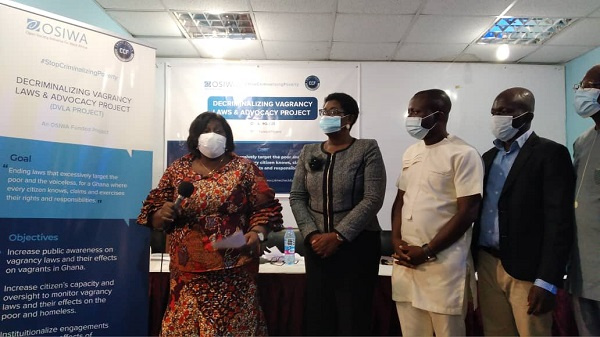Crime Check Foundation holds workshop on bye-laws
The project also aims at decriminalising bye-laws that fight against poverty.

The Crime Check Foundation (CCF) has held a workshop to create public awareness of bye-laws to discourage their violation.
The workshop, held in the La Nkwantanang-Madina Municipality in Accra, was part of a project dubbed: “Decriminalising Vagrancy Laws and Advocacy”, which the CCF is pursuing, with funding from the Open Society Initiative for West Africa (OSIWA).
The project also aims at decriminalising bye-laws that fight against poverty.
The project seeks to create an enabling environment for vagrants to know, claim and exercise their rights and responsibilities in the country.
Vagrants include the homeless, street hawkers, head porters, vendors, truck pushers, market women, artisans, among other vulnerable groups.
Participants at the workshop included officials of the La Nkwantanang-Madina Municipal Assembly, journalists and leaders of informal sector groups such as market women, truck pushers, transport associations, beauticians, hawkers, waste contractors and some Persons Living with Disability (PWDs).
They were taken through the various bye-laws in the country, including the Food Safety and Hygiene Bye-laws, 2017, and the Environmental bye-law.
Obey bye-laws
The Chief Executive of the La Nkwantanang-Madina Municipal Assembly, Ms Jennifer Dede Afagbedzi, urged the public to be abreast of the bye-laws of the metropolitan, municipal and district assemblies (MMDAs) to avoid finding themselves at the wrong side of the law.
She said that would also ensure that petty offences were prevented in the communities and on the streets, and eventually reduce the high remand population in the prisons.
“If certain bye-laws were to be enforced, probably the prisons would have no space to accommodate the offenders,” she said.
Objectives
A representative of the CCF, Mr Dawood Aidoo, explained that the objective of the project was to increase public awareness of vagrancy laws and their effects on vagrants in the country, and increase citizens’ capacity and oversight to monitor vagrancy laws and their effects on the poor and the homeless, while institutionalising engagements and actions on the effects of vagrants laws in the project districts.
SOURCE: GRAPHIC ONLINE


